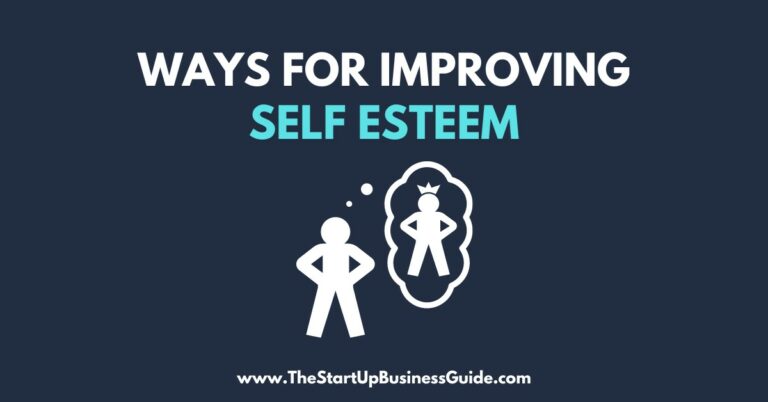8 Critical Thinking Skills You Need to Master Now

Critical thinking skills are essential for success in today’s fast-paced business world.
These skills allow individuals to analyze situations, solve problems, make strategic decisions, and communicate effectively with others.
In this blog post, we will explore 8 critical thinking skills that are crucial for mastering in today’s business environment.
Skill #1: Analytical Thinking
Analytical thinking is the ability to break down complex information and understand the relationships between different elements.
This skill is vital for making sense of data and making informed decisions.
To develop analytical thinking skills, it is important to practice analyzing information from a variety of sources.
This can be done by reading industry news and reports, conducting market research, and analyzing competitor data.
Additionally, practicing critical reading and writing can also help to improve analytical thinking skills.
Examples of analytical thinking in action include a financial analyst reviewing company financial statements to identify trends and make predictions, or a marketing manager analyzing customer data to create targeted marketing campaigns.
Skill #2: Problem Solving
Problem solving is the ability to identify and solve problems in a logical and efficient manner.
This skill is essential for finding solutions to business challenges and making effective decisions.
To develop problem solving skills, it is important to practice critical thinking and brainstorming.
This can be done by analyzing problems from different perspectives and considering a range of possible solutions.
Further, practicing effective time management and prioritization can also help to improve problem solving skills.
Examples of problem solving in action include a project manager identifying and resolving project roadblocks, or a salesperson finding creative solutions to close a difficult deal.
Skill #3: Innovation
Innovation is the ability to come up with new and unique ideas and solutions.
This skill is very important for staying ahead of the competition and driving business growth.
To develop innovation skills, it is important to practice creative thinking and experimentation.
This can be achieved by exploring new technologies and industry trends, and encouraging a culture of experimentation within the workplace.
Furthermore, practicing effective brainstorming and idea generation techniques can also help to improve innovation skills.
Examples of innovation in action include a company introducing a new product or service, or a business leader implementing a new process to increase efficiency.
Skill #4: Strategic Planning
Strategic planning is the ability to create long-term goals and plans for achieving them.
This skill is essential for creating a vision for the future and making informed decisions that align with that vision.
To develop strategic planning skills, it is important to practice long-term thinking and goal setting.
This can be done by creating a strategic plan for the organization, and regularly reviewing and updating it.
Moreover, practicing effective time management and prioritization can also help to improve strategic planning skills.
The examples of strategic planning in action include a company creating a 5-year plan for expansion, or a business leader setting annual sales targets.
Skill #5: Decision Making
Decision making is the ability to evaluate options and make choices that align with organizational goals.
This skill is essential for making informed decisions in a timely manner.
To develop decision making skills, it is important to practice critical thinking and evaluating options.
This can be done by considering multiple perspectives and potential outcomes when making decisions.
Further, practicing effective time management and prioritization can also help to improve decision making skills.
Examples of decision making in action include a CEO choosing to invest in a new technology or a product manager selecting which features to include in a new product release.
Skill #6: Creativity
Creativity is the ability to think outside the box and come up with unique solutions.
This skill is valuable for staying ahead of the competition and driving business growth.
To develop creativity skills, it is important to practice brainstorming, experimentation and seeking out new perspectives and experiences.
It can be done by encouraging a culture of creativity within the workplace and actively seeking out opportunities to learn and grow.
Taking time to engage in activities such as art, music, or reading can also help to improve creativity.
Examples of creativity in action include a designer coming up with a new fashion trend or a scientist discovering a new breakthrough in technology.
Skill #7: Communication
Effective communication is the ability to clearly and effectively convey information and ideas to others.
Communication is essential for building strong relationships and achieving success in the business world.
To develop communication skills, it is important to practice active listening, clear and concise speaking, and effective writing.
It can be done by participating in public speaking opportunities, seeking out constructive feedback and practicing different forms of communication such as email, phone and face-to-face interactions.
Some examples of effective communication in action include a team leader effectively communicating a project plan to team members or a sales representative effectively presenting a proposal to a potential client.
Skill #8: Emotional Intelligence
Emotional intelligence is the ability to understand, manage and use emotions effectively.
EQ is important for building strong relationships and effectively managing stress in the workplace.
To develop emotional intelligence skills, it is important to practice self-awareness, self-regulation, motivation, empathy and social skills.
It can be done by seeking out opportunities for personal and professional development, actively seeking out and providing constructive feedback and practicing mindfulness techniques such as meditation.
Examples of emotional intelligence in action include a manager effectively handling a difficult team member or a leader effectively communicating during a crisis.
Conclusion
In conclusion, mastering critical thinking skills is essential for success in today’s business world.
By developing and improving analytical thinking, problem solving, innovation, strategic planning, decision making, creativity, communication and emotional intelligence, individuals and organizations can better navigate the constantly changing business landscape.
Always remember that developing these skills take time and effort, so it’s important to be patient and consistent in your efforts.
In this blog post, we’ve explored 8 key critical thinking skills that are essential for mastering in today’s business environment.
We hope this article has provided valuable insights and practical tips for developing your own critical thinking skills.
We encourage you to take action and start developing your own critical thinking skills today.






